Seattle is undoubtedly one of the greatest ultimate communities in the country.
Seattle’s leagues, teams, and organizations are the envy of many other areas, especially in regards to the youth programs that help continually generate talented young players eager to make an impact, and often renew, college and club teams in the area.
But for the untrained or outside observer, the details that make this city and community so strong may be elusive. Answering the question, “Why is Seattle so good at ultimate?” is certainly a complex matter, but there are also definitely a few specifics to be pointed to.
One of those is an organization that has had a noticeable impact on the youth scene of the Emerald City: Seattle Fryz, a youth team and program created by Randy Lim that was an incredibly important stepping stone not only in continuing the city’s growing ultimate movement, but also in the lives of many coaches, players, and families that lead the new generation in the burgeoning sport.
The names of those impacted by and associated with Seattle Fryz speak volumes concerning its success.
Jacyln Verzuh is the youngest player ever to make the women’s team Seattle Riot and is one of the top upcoming female players in the country. She is also a graduate of the Fryz system.
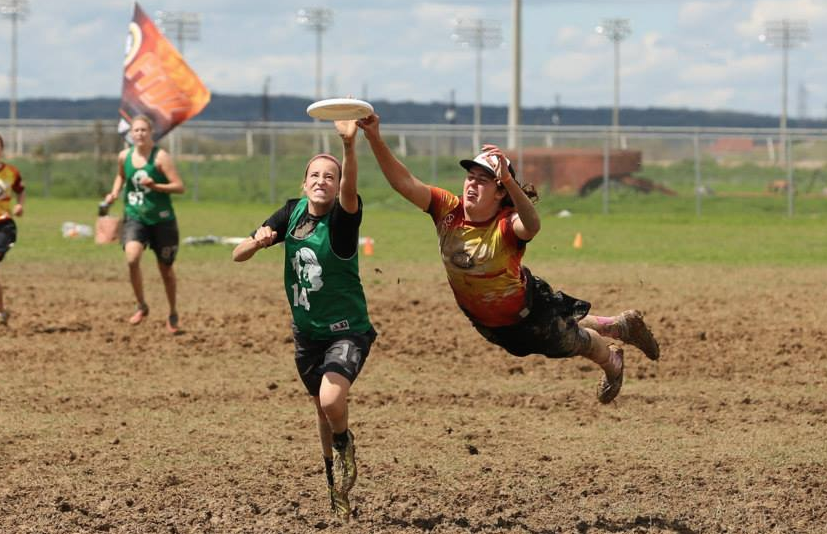
Jaclyn Verzuh lays out at Centex 2015.
“For Seattle youth ultimate,” Verzuh explains, “it gave a group of youth players great coaches and opportunities early in their careers, and also created more connections in the Seattle youth ultimate scene.”
“Fryz was an opportunity to learn and get to know people from all over the city, with different backgrounds, and grow as a leader,” says Alyssa Weatherford, another star Riot player and a renowned coach.
“Fryz gave me the opportunity to meet amazing players from all over the city and inspire me to continue to grow as a coach so that I can give my team the best experience possible,” she goes on to say. “I was able to make connections with players that are super meaningful to me and it has been so amazing watching them go through high school and into college. I feel very lucky that I got to be part of the program.”
From 2007 to 2015, the Fryz were a force to be reckoned with, an exemplar for the nation of what youth ultimate could and would do. Hundreds of people- coaches, parents, and players- were touched by its unique family. Now, for the first time, young players in Seattle will have to turn elsewhere, Fryz ending not because of failure, but because growth and success. So strong had the teams become that the high demand for quality ultimate by the youth of the city was not always able to be met by such elite squads. Randy Lim, creator of the teams, watched his own children and their friends grow and pass through its ranks, and has learned to let go, to step back and let others step forward. Fryz alum will build something new as an exciting youth system called Seven Hills Ultimate fully begins to take steam for the Emerald City.
Seattle Fryz has come to an end, but its impact will be felt for years to come largely because of people like Lim, Weatherford, and Verzuh, and so many others who learned and grew by becoming apart of it.
The Origins of Seattle Fryz: Moho and the Rise of the NW Youth Scene
Fryz is a youth program and club team that has catapulted coaches and players forward in successful development in the sport of ultimate and has led to community growth that is the envy of many around the country, but how did it begin?
Seattle Fryz’s story starts in a somewhat unlikely way and from an unlikely source: non-ultimate playing parents.
So often ultimate players are the ones that have introduce their families to the unique and often unknown sport of ultimate. But growing popularity and enthusiasm from parents is one of the reasons youth ultimate has been increasing in places like Seattle. In no way is this more exemplified than the case of Randy and Elana Lim and the Fryz.
“Fryz started as a way for us to be with my 2 sons, Justin and Jordon,” recalls Randy. “I had organized them and their friends to play in an adult tournament called Spawnfest. We had won 1 game and were quite satisfied with ourselves being only 7th and 8th graders and beating an adult team. Elana, my wife, said to me ‘You know, if we had a real coach, we probably would have won more games’.”
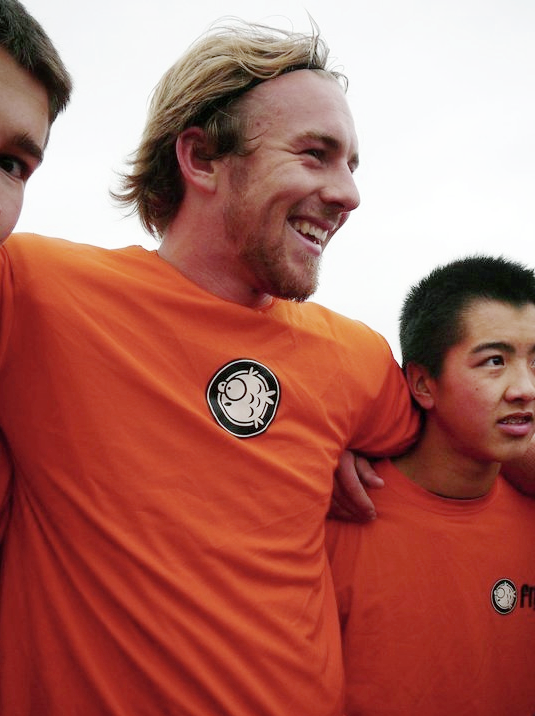
From left to right: John Raynolds, Matt Rehder (coach), and Justin Lim – now all Seattle Sockeye players, at Sundodger 2010 with the Fryz.
The origins for the program of Seattle Fryz can be traced back to Moho (short for More Horizontal), a predecessor program in the city from the late 90’s.
Ben Wiggins, a renowned ultimate veteran and nationally known voice for the sport, describes Moho and his involvement in it in a way that evokes memories of Seattle Sockeye’s dynasty run and shows the important connection between youth programs and club success.
“Moho went through something like a 10-year run in various forms,” Wiggins explains. “It was started by a few top players from teams wanting to combine to play in better (adult) tournaments, which culminated in winning the Youth championship.”
Names on some of those Moho teams will sound incredibly familiar: Chase Sparling-Beckley, Jimmy Chu, Jeremy Cram, and more, guys who helped deliver Seattle it’s first junior North American championship and eventually were instrumental in leading Sockeye to its early UPA championships some years later.
“I started working with the team when I arrived in Seattle in 2003,” recalls Wiggins, “and the previous coach moved away, and Miranda Roth and I helped regularize practices and start bringing in a host of much-appreciated guest coaches. While the team still went to some tournaments, the focus was on adding depth to the ultimate they were learning on their school teams (and providing a place to play for those whose schools still didn’t have teams, which was increasingly rare in Seattle).”
Moho’s momentum was too soon powerful to slow and its growth exploded in the mid 2000’s. By then, they had created a middle school version of the program while also bringing in dozens of new players. As the numbers approached a consistent level of 60-70 per practice, Moho began expanding into more of a clinical organization as opposed to a high-quality team, losing the value of efficient well-run practices to suit the specific needs of some of the players.
Moho also was still very coach-driven, often lacking close ties to the families of the athletes; a marriage of ultimate parents and quality coaches would come with Fryz, but only because of Moho and the Lim’s participation in it.
In 2008, Randy and Elena Lim’s own kids were getting into ultimate; bringing a family focus and passion, the Small Fryz were born.
“Justin went to a Moho practice that was put on by DiscNW,” remembers Randy Lim, thinking back to a rainy day, “and coached by Miranda Roth Knowles. He and Miranda were the only ones who came to Moho at Hamlin Park. The stars aligned and I asked Miranda if she wanted to coach a group of middle school kids who were passionate about playing and learning.”
The connection to Roth would be critical turning point for turning the Fryz, transforming the small team into a powerful program.
As Moho expanded, and eventually began to transition out, a need grew for a focused team to fill the gap, one with a more specific and competitive focus. And now Seattle had that team, led by passionate parents and a stellar coach.
Small Steps and Quick Rise
“Drawing on my tennis experience, I knew coaching and a high level of competition would make a difference in skill, passion, mental agility, learning to lay it all out on the field, winning one point at a time while improving their game,” explains Lim. “Just as important, was learning how to accept hard losses, to persevere and maintain perspective.”
Randy and the Small Fryz jumped in with both feet, like many ultimate club teams simply looking for more opportunities to learn and play. Having Miranda Roth-Knowles catapulted them forward. Of course it wasn’t long until the program began to grow both in size and dedication. As players grew more interested, the Small Fryz were small only for a short time. Before long, the team began to change, focusing on more determined practices and leading to greater success on the field, but still featured both boys and girls.
This mixed group eventually split into two single-gender high school teams and eventually a middle-school division was created.
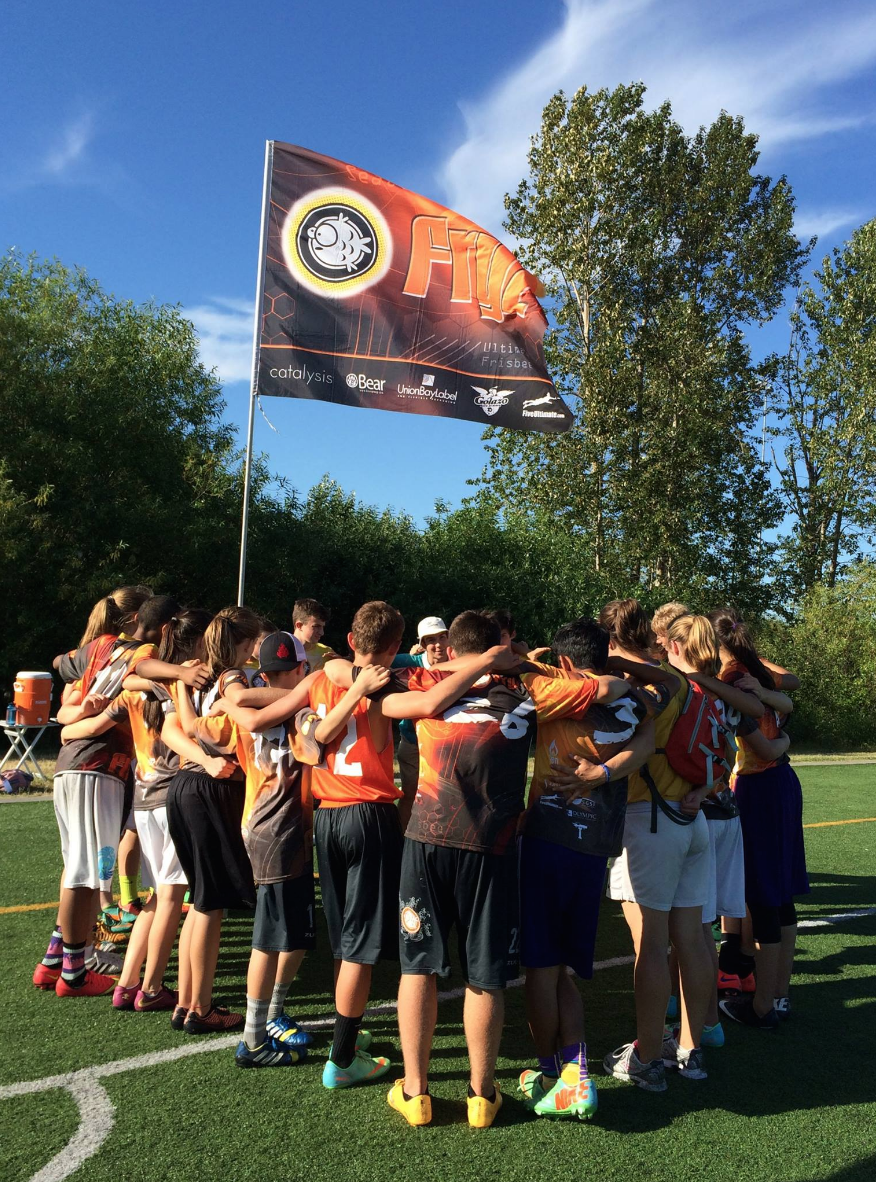
The last practice of Small Fryz in 2015.
Fryz began to hit serious practices and find their winning formula on and off the field. For Randy that meant a special formula for the team that brought some powerful philosophies that he believed would create good players and great teammates.
There were several keys: one was building real relationships on and off the field, which helps explain some of the incredible communities of friends and family developed and often seen on the Fryz sidelines (where raucous cheering sessions meet tons of home-cooked food). Another was being smarter on the field working with teammates and leaders and playing as tough of competition as they could possibly find (leading to Fryz’s appearance in some of the best games and tournaments in the country). It was also about being as fit as possible through conditioning camps prepping for short and long-term gains. It all worked and it all led to more and more growth.
None of that growth, however, could have happened without some serious help from the coaches. Coaches like Miranda Roth-Knowles and others were a very important step one.
Leadership and Renewal
“The chemistry of the kids and the coaches,” explains Lim, when asked what made the difference for his team. “Fryz has morphed into something beyond my hopes, beyond my capacity and my passion. Sometimes there is a confluence of events for magic to unfold. That’s what Fryz has been for me, magic.”
2008 brought Miranda Roth Knowles and her coaching passion and precision to the program, helping to escalate the speed of Fryz’s growth and talent rise. It would also start a tradition, one that is finding success in some of the best youth organizations around the country, of bringing in top outside talent to lead young teams.
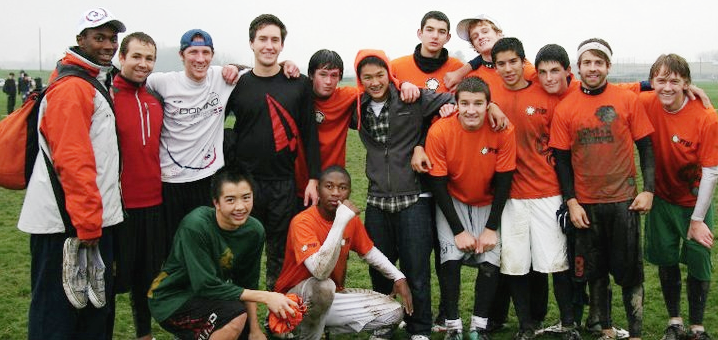
“Fryz at Sundodger 2010. Part of the Fryz philosophy was to get better you needed play with better people and/or be coached by them. Actually “playing” with great players. There is no better experience.” – Randy Lim
Throughout the great history of Fryz, many experienced and savvy players have donned a coaching hat and it has been one of the great reasons why the program has thrived. As players moved on to college and club, many would come back and continue to help the next generation, a circular process of renewal that made the tight-knit community only stronger.
Ryan Winkelmann, Sarah Griffith, Shannon O’Malley, Sam Harkness, Spencer Wallis, Alyssa Weatherford, Khalif El-Salaam… the names go on and on, influential college and club players getting a hand at molding the young Seattle players in the form of coaching Fryz. Connections to Riot, Sockeye, the Ghetto Birds, and the professional teams as well, strengthened even further, and a veritable pipeline of young Seattle talent was being expertly guided by the best of the local club and college scene.
Rising to the Top End
“I was first invited to play with the high school girls’ team in 2011, the fall of my freshman year of high school. I made the high school girls’ team that year and played on it every year through high school,” recalls Jaclyn Verzuh.
“Fryz gave me an opportunity, as a very young player, to have role models and a standard of what youth ultimate could look like,” she goes on to say. “Once I made the team, it gave me absolutely world class coaching, and opportunities to be pushed at a very high level early in my ultimate career… I can confidently say that the coaching and playing opportunities that I had through Fryz in high school allowed me the successes I have had since.”
Players like Jaclyn and so many others had the opportunity to meet, be coached by, and even play against some of the top players and teams in the country. Experience and confidence came hand in hand.
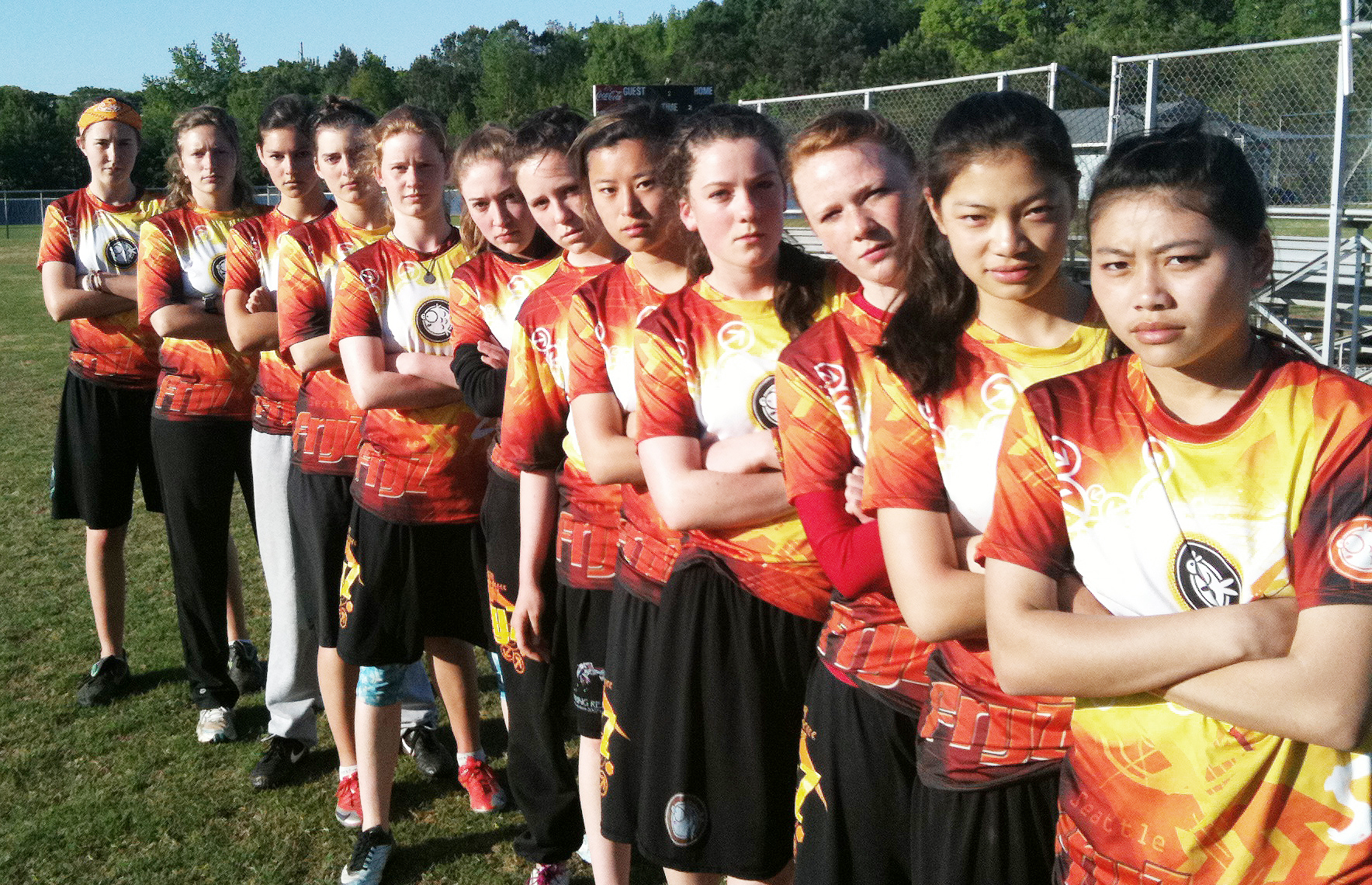
Fryz Girls at Paideia 2011
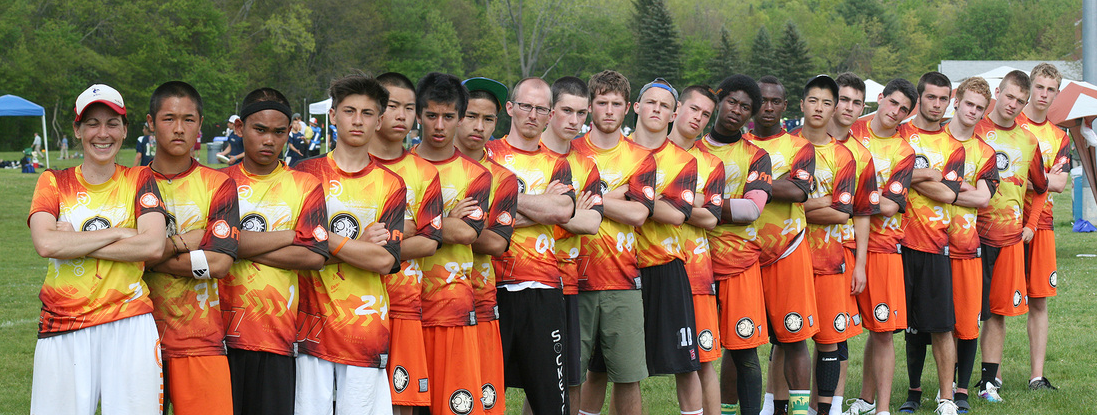
Fryz Open at Amherst 2012
“Fryz gave me the opportunity to meet amazing players from all over the city and inspire me to continue to grow as a coach so that I can give my team the best experience possible,” says Coach Weatherford. “I was able to make connections with players that are super meaningful to me and it has been so amazing watching them go through high school and into college.”
But, like Moho before it, Fryz had its time of beginning and end. The passion driven by Randy Lim and the families of Fryz were still there, but now new kids were stepping into the shoes of those that had graduated and moved forward.
“For me personally I got to be a part of the conversations during the foundational years of these kids’ lives,” explains Lim.
“At the last Fryz Tryout, it was represented by 33 high schools and 31 middle schools from the greater Seattle area. 283 players tried out. The final selection for 4 Fry teams was made up to the 19 players and coaches on the selection committee and myself,” marvels Lim. “The final teams were represented by 15 different middles schools and 21 different high schools in the greater Seattle area. We were a very diverse team including family structure, race, ethnicity, gender, religion, socioeconomic and education. All players participated regardless of their ability to fund.”
Those players went on to be leaders at dozens of different colleges and so Fryz carries on with them, although it has come to an end for Seattle.
Randy Lim reluctantly let go of the program, but the memories and powerful impact remain.
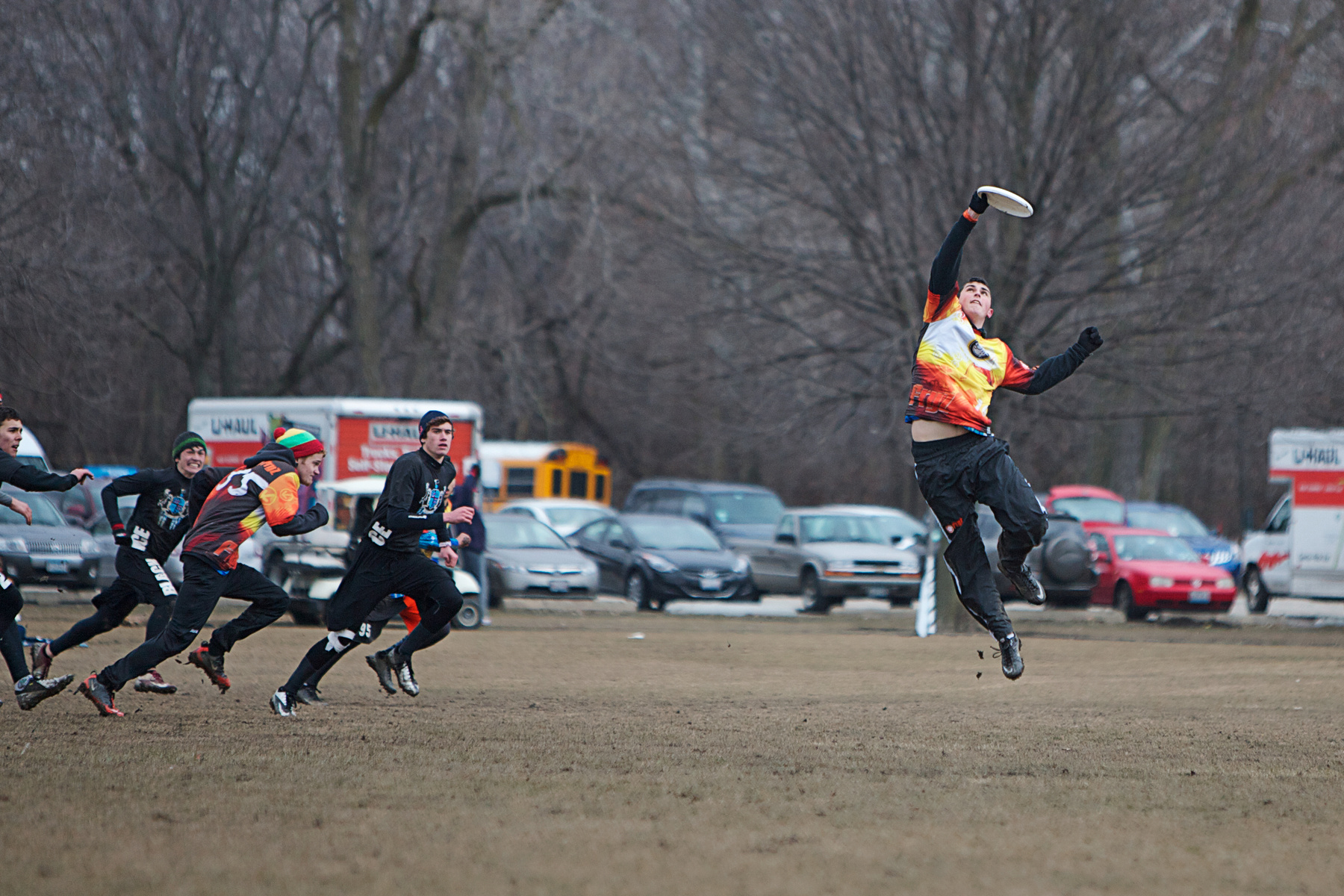
Alex Fraser – UltiPhotos.com
Fryz’s Impact and the Move Forward
Fryz has carried a few youth generations forward into Seattle ultimate and has been embraced by the community and admired by many around the country for their efforts and their successes. The program has founded friendships and strengthened families, all the while teaching and producing many very strong ultimate players who now roam the colleges and clubs of the area, leading by words and examples.
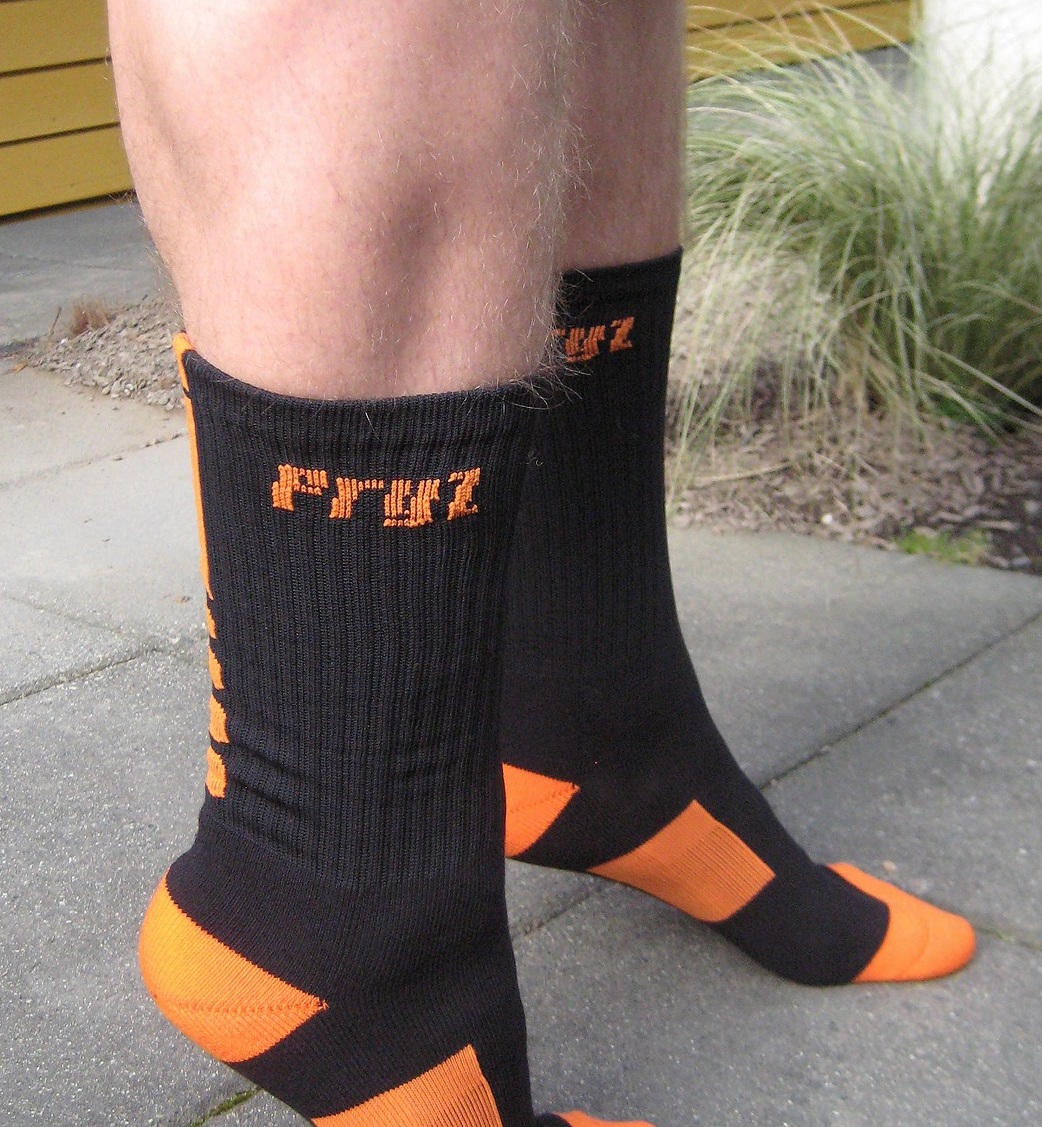
In addition to organizing, Randy Lim designed all of the gear worn by the Fryz.
The best ways to truly appreciate the impact of the team is to take a look at many some of the individuals that have thrived within Fryz.
“Fryz was the place that I learned many of my sports-related life lessons: it made me a more confident person,” explains Jaclyn Verzuh. “I learned about being a good teammate, it gave me space to try and fail and trust that my teammates would have my back, it was a place I always felt challenged in the best ways, and it was somewhere I formed a lot of amazing relationships, where I made some friends that I will hopefully have for the rest of my life.”
Alyssa Weatherford, as a coach and leader has similarly fond memories of the connections and confidence Fryz brought.
“Fryz gave me the opportunity to meet amazing players from all over the city and inspired me to continue to grow as a coach so that I can give my team the best experience possible,” she said. “I was able to make connections with players that are super meaningful to me and it has been so amazing watching them go through high school and into college. I feel very lucky that I got to be part of the program.”
Seattle Fryz’s impact upon the personal lives of its members and leaders is paramount, but the lasting effect of the program will be seen most on the city as a whole, especially as Seattle moves forward into a new era.
Weatherford is taking many of the ideals and experiences of her Fryz experience and helping to lead the new Seven Hills Ultimate Program in Seattle, which will help the next several generations of youth players learning and playing in the city.
“When Fryz was done, there was a void that the youth and parents of Seattle wanted, myself and a couple of the other coaches were inspired to create a new program that was different,” she explains.
Seven Hills will take many of Fryz’s tenets, while trying to expand accessibility and playing opportunities to continue to further the growth of the community. Fryz, like Moho before it, perhaps struggled in the end because of its success as more and more players eagerly sought to learn and play in its ranks.
Seven Hills will attempt to create a more formalized city-wide system.
While many young ultimate players look ahead to the next step in the journey, many who knew Fryz look behind, to pause and remember the gifts it gave.
“Fryz started as a parent wanting to give his sons the best opportunities he could in something they loved, the sport of ultimate. It ended up being a nationally recognized youth club team, and on the way it was an incredibly powerful force in the lives of many young people,” Jaclyn concludes.
“I personally am incredibly grateful to Randy and Elena for the opportunities Fryz gave me, but more importantly the love they gave to Fryz because it created a community where I found support and love and a lot of really amazing people.”
FRYZ SE7EN YEARS from Fryz Ultimate on Vimeo.





Comments Policy: At Skyd, we value all legitimate contributions to the discussion of ultimate. However, please ensure your input is respectful. Hateful, slanderous, or disrespectful comments will be deleted. For grammatical, factual, and typographic errors, instead of leaving a comment, please e-mail our editors directly at editors [at] skydmagazine.com.